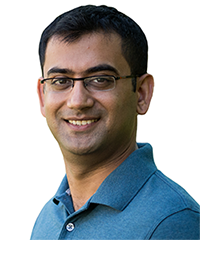Arunabh Ghosh is a historian of twentieth century China with interests in social, economic, and environmental history, (transnational) histories of science and statecraft, and China-India history. He is currently an assistant professor in the History Department at Harvard University.
Dr. Ghosh’s first book, Making it Count: Statistics and Statecraft in the early People’s Republic of China, 1949-1959 (forthcoming, Princeton University Press), offers new perspectives on China’s transition to socialism in 1949 by investigating an elemental but hardly elementary question—how did the state build capacity to know the nation through numbers? Anchored in global debates over statistical theory and method, Making it Count reveals how Chinese statisticians, economists, and leaders understood and conceptualized social facts in the 1950s. These are questions that have taken on renewed significance in our current age of big data, total information, and heightened surveillance.
Dr. Ghosh is currently working on two new book projects. The first is titled “Hydraulic Dreams: Dam-building and Scales of Engineering in Twentieth Century China.” Although there exist significant bodies of work that analyze water management through China’s long history or consider the rise and effect of recent mega-projects like the Three Gorges Dam, we still have no historical account of dam-building in China in the past one hundred years, a period during which one in every three large dams constructed in the world was Chinese. Using scale as a key conceptual lens, “Hydraulic Dreams” will examine this history in the light of twentieth-century scientific utopianism, technological and environmental history, and national and transnational networks of expertise and labor. A second book project emerges out of Dr. Ghosh’s interest in reshaping the subfield of modern China-India history, which remains mired in civilizational or realpolitik frameworks. “Trans-Himalayan Science in Mid-Twentieth Century China and India” will trace the diverse networks of science and scientists that spanned China and India from the 1900s to the 1980s. Dr. Ghosh has also been collaborating with the historian Tansen Sen (NYU Shanghai) on an archival project to collect and collate China-related materials within the recently declassified Jawaharlal Nehru Papers, 1947-1964.
Dr. Ghosh’s work has appeared in the Journal of Asian Studies, Osiris, BJHS Themes, and the PRC History Review. At Harvard, his graduate offerings include seminars on different aspects of twentieth century Chinese history and Asian environmental history. He also offers examination fields in Modern Chinese History. At the undergraduate level, he regularly offers a survey lecture on Modern China (1894-Present) and upper-level courses on large-scale technological and social engineering projects in post-imperial China and on the economic history of modern China.
Trained at Haverford College and at Tsinghua and Columbia universities, Dr. Ghosh joined Harvard’s History Department in 2015. Before that he was a postdoctoral fellow at the Harvard Academy for International and Area Studies.
